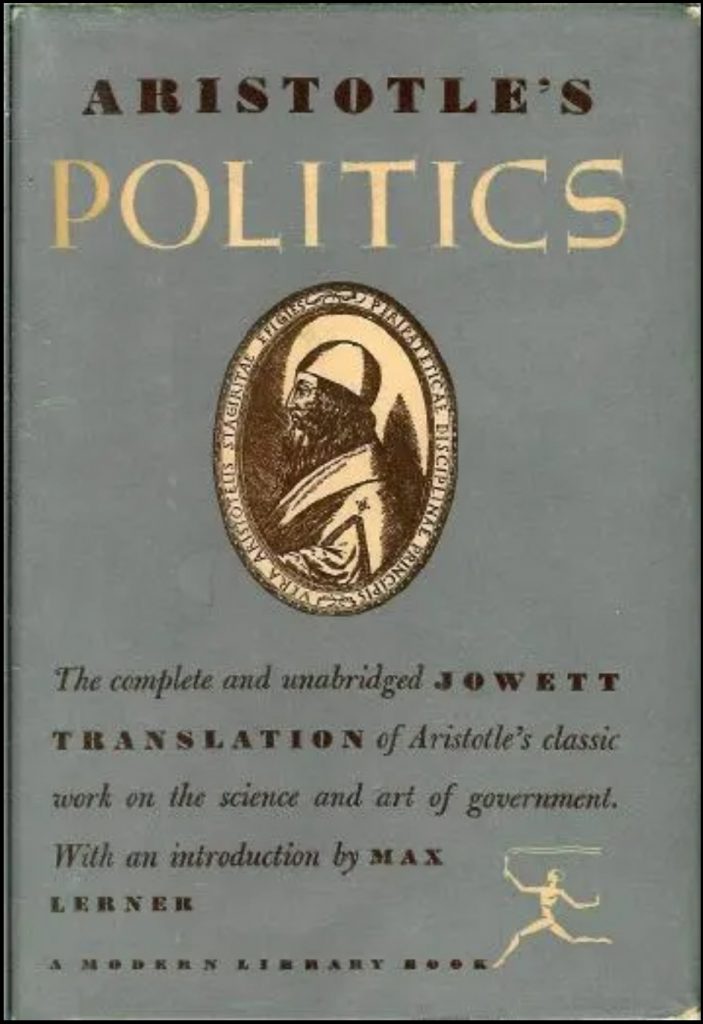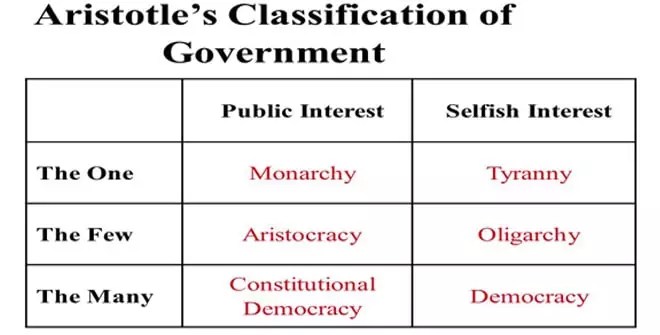introduction
Aristotle, born in 384 BCE in Stagira, Chalcidice, Greece, stands as a colossal figure in the annals of Western philosophy and science. His death in 322 BCE in Chalcis, Euboea, marked the end of a life dedicated to intellectual exploration and teaching. As the founder of the Lyceum and the Peripatetic school of philosophy, Aristotle’s contributions spanned a vast array of subjects, including logic, metaphysics, ethics, politics, and natural sciences. His works laid the groundwork for both Christian Scholasticism and medieval Islamic philosophy, and his influence permeated through the Renaissance, the Reformation, and the Enlightenment. Aristotle’s intellectual legacy, characterized by his systematic and scientific approach to knowledge, continues to be a cornerstone of philosophical inquiry and education.

Contribution of Aristotle to political thought
Aristotle’s contributions to political thought are profound and enduring. He is credited with establishing the field of political science as a systematic discipline. His seminal work, “Politics,” delves into various aspects of political life and theory, offering insights that have shaped Western political thought for centuries. Here are some key contributions of Aristotle to political thought:
- Concept of the Polis: Aristotle viewed the city-state, or polis, as the highest form of community, aiming at the highest good¹.
- Naturalistic View of the State: He argued that the state is a natural institution, essential for human beings to achieve their full potential.
- Classification of Governments: Aristotle classified governments into monarchy, aristocracy, and polity (constitutional democracy), based on whether they serve the common good or the rulers’ private interests.
- Theory of the Golden Mean: He applied his ethical concept of the “Golden Mean” to politics, advocating for a balanced and moderate approach to governance.
- Mixed Constitution: He proposed a mixed constitution as a solution to prevent instability and establish a lasting form of government in the Greek city-state.
- Political Participation: Aristotle emphasized the value of political participation for the well-being of the individual and the community.
- Critique of Plato’s Ideas: While he was a student of Plato, Aristotle critically engaged with his teacher’s ideas, often providing counterarguments and alternative perspectives.
Aristotle’s political philosophy remains a cornerstone of the study of political science, influencing the development of modern political systems and democratic governance. His work continues to be a subject of study and debate among scholars and students of political theory.
state according to Aristotle
Aristotle’s thoughts on the state are a fundamental aspect of his political philosophy. Here are ten points summarizing his views:
- Natural Institution: Aristotle believed that the state is a natural institution that arises spontaneously from the nature of human beings¹.
- Purpose of the State: He argued that the state exists for the sake of achieving the good life, and it is the community that aims at the highest good.
- Hierarchy of the State: The state is the culmination of the natural progression from the individual to the household, to the village, and finally to the state.
- Political Animal: Humans are ‘political animals’ who naturally seek out the state because they are more self-sufficient together than alone.
- Classification of Governments: Aristotle classified states into monarchies, aristocracies, and constitutional governments, judging them on whether they serve the common interest or merely the interest of the rulers.
- Citizenship and Participation: He emphasized the importance of citizenship and the role of citizens in participating in the functions of the state.
- Mixed Constitution: Aristotle favored a mixed constitution, combining elements of democracy and oligarchy, to prevent the excesses of either system.
- Rule of Law: He advocated for the rule of law and argued that the best rulers are those who govern as embodiments of the laws of the state.
- Education and the State: Aristotle believed in the importance of education for citizens, provided by the state, to cultivate virtue and the ability to rule and be ruled in turn.
- State as a Partnership: He viewed the state as a partnership in all the things that make life worth living, extending beyond mere living to well-being.
Aristotle’s vision of the state is characterized by its focus on the common good, the natural development of political communities, and the central role of citizens in achieving a virtuous and fulfilling life. His ideas continue to influence contemporary political theory and practice.
Merits:
- Naturalistic Foundation: Aristotle viewed the state as a natural entity that arises out of the basic human need to form communities. This perspective emphasizes the organic development of societies and their political structures¹.
- Focus on the Common Good: He believed that the state should aim for the common good, which is the highest good. This aligns the state’s purpose with the ethical and moral development of its citizens¹.
- Political Participation: Aristotle underscored the importance of political participation, suggesting that it is through engagement in state affairs that individuals achieve their fullest potential and contribute to the well-being of the community¹.
Demerits:
- Totalitarian Tendencies: Critics argue that Aristotle’s concept of the state is all-encompassing, leaving little room for individual autonomy. The individuals in his ideal state are completely merged with the state, potentially leading to a totalitarian system¹.
- Elitist Views: Aristotle’s ideal state often favored the rule of the ‘best’ or most virtuous, which can be interpreted as elitist, potentially marginalizing those not deemed as such¹.
- Resistance to Change: While Aristotle recognized the inevitability of change, his ideal state is one of stability and continuity, which may resist necessary reforms and adaptations to new circumstances¹.
These points reflect the complexity of Aristotle’s thought and the ongoing debates about the implications of his political philosophy.
classification of government
Aristotle’s classification of government is a cornerstone of his political philosophy, reflecting his analytical approach to the various forms of governance. He categorized governments based on two key principles: the number of individuals holding the supreme power and the nature of their governance—whether they serve the common good or their own interests. Here’s an overview of Aristotle’s classification:

- Monarchy: A single person holds power. When this power is exercised with virtue and for the common good, it is considered an ideal form of government. The perversion of monarchy is tyranny, where the ruler serves their own interests at the expense of the people.
- Aristocracy: A small group of the best individuals, often based on virtue and wisdom, governs. This form becomes oligarchy when the ruling class governs for its own benefit, typically associated with wealth and power.
- Polity: This is a form of constitutional government that Aristotle viewed positively, where many citizens are involved in governance, aiming for the common good. It is a balanced mixture of oligarchy and democracy. The degenerate form of polity is democracy, which Aristotle saw as the rule of the many driven by their own interests rather than the common good.
Aristotle also discussed the cycle of political change, where he observed that governments naturally evolve and devolve through these forms over time. For instance, he noted that monarchies can deteriorate into tyrannies, which may then give rise to democracies, and so on. This cycle reflects the dynamic nature of political systems and the constant struggle between different forms of governance.
Aristotle’s insights into the classification of governments provide a framework for understanding the strengths and weaknesses of different political systems and their impact on the state and its citizens.
theory of revolution
Aristotle’s theory of revolution is a significant aspect of his political philosophy, examining the causes of political instability and change. Here are the key elements of his theory:
- Definition of Revolution: Aristotle did not equate revolution with violence or armed struggle. Instead, he saw it as any significant change within the political system, which could occur with or without altering the constitution.
- Causes of Revolution: He identified two categories of causes: general and particular. General causes include disparities in wealth distribution, arguments over justice, and the desire for honor or property. Particular causes are specific to different forms of government.
- Psychological Factors: Aristotle believed that psychological factors, such as the desire for equality, honor, and avoidance of dishonor, play a crucial role in revolutions.
- Economic Factors: Economic grievances, such as the illicit gains by state officials at the public’s expense, can fuel revolutionary sentiment.
- Political Factors: The erosion of justice and political corruption can lead to revolutions. Aristotle argued that when governments fail to serve the common good, they become susceptible to overthrow.
- Prevention of Revolution: To prevent revolutions, Aristotle suggested maintaining a balance of power, ensuring justice, and addressing the needs and grievances of the populace.
- Change as Inevitable: Unlike Plato, who viewed change negatively, Aristotle accepted change as inevitable and potentially progressive, moving towards an ideal.
- Study of Constitutions: Aristotle’s conclusions were based on his extensive study of 158 constitutions, which helped him understand the dynamics of political change.
- Role of the Middle Class: He believed that a strong and sizable middle class could stabilize a political system and prevent revolutions by balancing the extremes of wealth and poverty.
- Importance of Education: Aristotle emphasized the importance of education in cultivating virtue among citizens, which in turn would contribute to political stability.
Aristotle’s theory of revolution provides a comprehensive framework for understanding the multifaceted causes of political upheaval and the measures that can be taken to prevent it. His insights remain relevant to contemporary discussions on political stability and change.